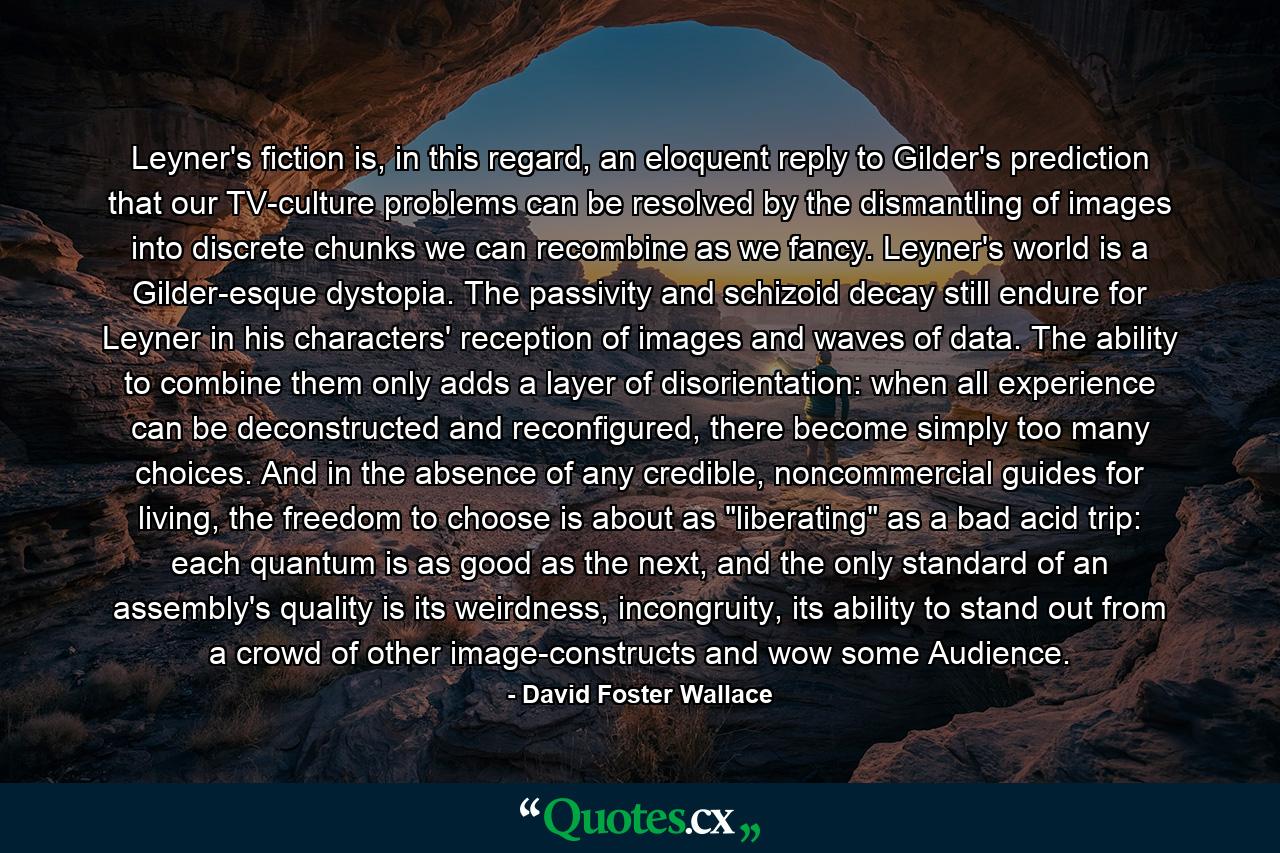Leyner’s fiction is, in this regard, an eloquent reply to Gilder’s prediction that our TV-culture problems can be resolved by the dismantling of images into discrete chunks we can recombine as we fancy. Leyner’s world is a Gilder-esque dystopia. The passivity and schizoid decay still endure for Leyner in his characters’ reception of images and waves of data. The ability to combine them only adds a layer of disorientation: when all experience can be deconstructed and reconfigured, there become simply too many choices. And in the absence of any credible, noncommercial guides for living, the freedom to choose is about as “liberating” as a bad acid trip: each quantum is as good as the next, and the only standard of an assembly’s quality is its weirdness, incongruity, its ability to stand out from a crowd of other image-constructs and wow some Audience.
